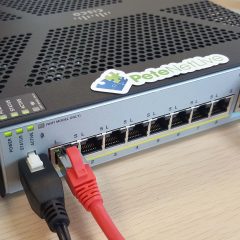Find out your Cisco ASA version (Operating system and ASDM)
KB ID 0000690 Problem With all the command changes that have come in in the past few versions, it seems when I get asked ‘how do you do xyz?” my first question is ‘What is the OS version on your ASA?’ So next time I get a blank look, I can just point them here. Also see: ASA 5505 Determine Your License Version Solution Get your ASA version and ASDM version from the ASDM. 1. Connect to the ASA via ASDM. 2. Home...
Cisco ASA – Using ‘logging’ to see what ports are being blocked
KB ID 0000702 Problem If you look after a firewall, sooner or later something will fail, and the blame (rightly or wrongly), will be leveled at the firewall. I came back from holiday this week to find a client had got a problem with secure POP email. The problem had been fixed (temporarily) by dropping the affected users into a group, and opening all ports. As this had fixed the problem then it’s fair to say that the ASA was...

